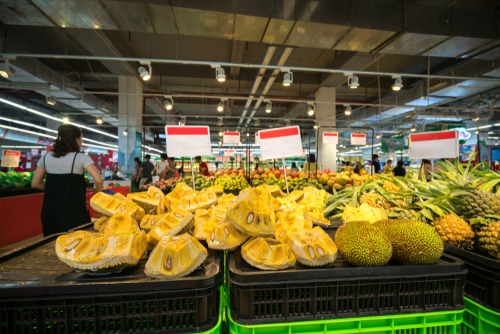 Have you ever looked around the grocery store and noticed how the produce section seems to be selling more unconventional fruits and vegetables these days?
Have you ever looked around the grocery store and noticed how the produce section seems to be selling more unconventional fruits and vegetables these days?
The recent popularity of meal kits, online produce sites, nutrition awareness and food-focused media have influenced the increasing volume and accessibility of specialty produce. Up until a few years ago, organic and so-called “exotic” products were only found in organic or cultural markets. Now they are becoming more and more commonplace in supermarket chains.
You would think that this level of heightened awareness would be advantageous for local co-op and health food businesses. However, it has had the opposite effect in many instances. The popularity of organic and other health-oriented, food-focused grocers, such as Whole Foods Market, The Fresh Market and Sprouts Farmers Market, is having a negative impact on the small, independently-owned specialty market.
This has impacted me personally with the closure of a long-running (over 35 years) local natural food co-op. This co-op served a community of vegetarians, vegans, and many others with organic products when no one else would make the investment. Now, those who once visited the co-op for items of interest can now find most of the very same items and other goods at the local supermarket or online. This has been devastating to small niche markets in our city and in many other larger markets as well.
Changes in channel can have varying effects on suppliers and retailers. The local organic farmers have a much larger market available to them, and in most cases, the quality of their product improves because of volume. In other instances, retailers can expand their offerings only to experience spoilage of new-to-market items they choose to stock.
Jackfruit is one example of a “specialty” produce that has gained recent attention and popularity. This member of the fig and mulberry families is very popular with vegans as a highly nutritious meat substitute. Nutrition articles, vegan meal kit menus and specialty produce websites have aided in the popularity of this tropical fruit.
Recently, jackfruit was the focus of some local buzz as it was requested at the local big box supermarket. Probably, the store buyer thought it looked cool and that there would be customers would want to purchase jackfruit. Six jackfruits were ordered and according to my pal the produce guy, four of them were sold. I happened to witness the two remaining jackfruit go through various stages of traditional merchandising and decomposition until they were unfortunately discarded.
Could another tactic have been used to reduce product loss?
If the store manager had only ordered what was requested, this loss could have been avoided. But while this strategy keeps food from spoiling, it unfortunately eliminates the opportunity to put the product on display for other customers.
I favor a more proactive approach that exposes your customers to some of these new items, such as jackfruit, with some supporting information designed to educate them on ways they can prepare the product. Being creative and instructive in merchandising can provide great benefits. Two ideas – using jackfruit as a substitute for crab in crab cakes or for pork in shredded pork-less barbecue – could also help to extend the popularity of meatless meals to other shoppers. Regardless of the approach, the grocer will have a better chance of avoiding spoilage and may gain more customers in the process.
You can find more ways to safely prepare jackfruit and other products, and search for a variety of food service equipment to help you maximize your foodservice operation at www.unifiedbrands.net.
Enjoy the food!
Michael Williams
Director of Culinary Marketing, Unified Brands
Michaelw@unifiedbrands.net